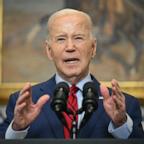A timeline of Elon Musk's tumultuous Twitter acquisition
Musk's acquisition of the social media company has been mired in controversy.
The richest person in the world said he wanted to own one of the most popular social media platforms -- until he said he didn't. In early October, he reversed course again, saying he wanted to complete the deal.
On Oct. 28, he finally did.
Tesla CEO Elon Musk completed the deal to acquire Twitter at his original offer price of $54.20 a share at a total cost of roughly $44 billion.
In the ensuing days, Musk fired top executives, laid off half of the company's staff, formed a content moderation council that will review account reinstatements and revamped the platform's subscription service.
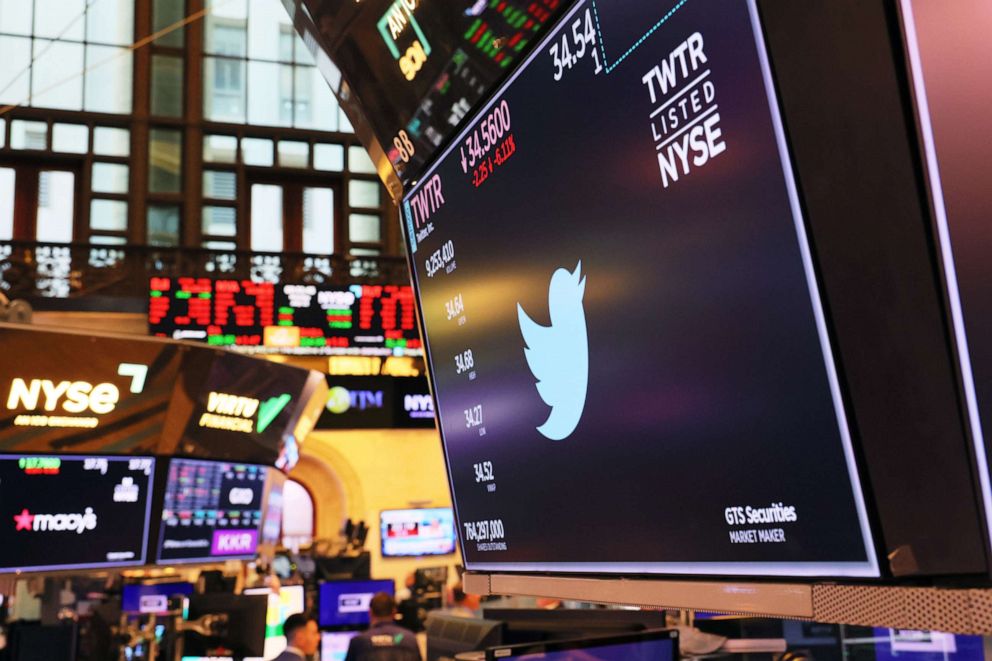
The changes at Twitter mark the latest chapter in a monthslong saga that began in January when Musk started investing in the social media company.
Musk reached an acquisition deal with Twitter in April, but over the ensuing weeks, he raised concerns over spam accounts on the platform, claiming Twitter had not provided him with an accurate estimate of their number. Twitter rebuked that claim, saying it has provided Musk with information in accordance with conditions set out in the acquisition deal.
In May, when Musk said the deal was on "temporary hold" over bot concerns, Dan Ives, a managing director of equity research at Wedbush, an investment firm, told ABC News the grievance could serve as a pretext for Musk to renegotiate or abandon the deal amid a market downturn that had proven especially pronounced for tech stocks.
Over the course of the saga, Musk has been cast as a suitor, critic and legal adversary of Twitter, where he boasts 115 million followers. Below is a timeline of Musk's bid to acquire the social media platform, and what has happened since he took ownership.
Late January – Musk begins investing in Twitter, according to information filed with the Securities and Exchange Commission in April.
March 14 – Musk's stake in Twitter reaches 9.2%, making him the largest shareholder in the company, according to a securities filing.
April 4 – In a securities filing, Musk discloses his stake in Twitter. Based on the price of Twitter shares at close of the previous trading day, his stake was worth $2.89 billion. Twitter shares rise more than 27% on the announcement.
April 5 – Twitter announces Musk will join the company's board of directors.
"He's both a passionate believer and intense critic of the service which is exactly what we need on @Twitter, and in the boardroom, to make us stronger in the long-term," Twitter CEO Parag Agrawal said on the platform. "Welcome Elon!"
April 10 – Musk says he will not join the Twitter board after all.
"There will be distractions ahead but our goals and priorities remain unchanged," Agrawal said in a statement announcing Musk's choice. "The decisions we make and how we make them remain in our hands, no one else's."
April 14 – Musk offers to buy Twitter at $54.20 per share, valuing the company at about $43 billion, according to a securities filing. The offer amounts to a 38% premium above where the price stood a day before Musk's investment in Twitter became public.
"I invested in Twitter as I believe in its potential to be the platform for free speech around the globe, and I believe free speech is a societal imperative for a functioning democracy," Musk said in a filing with the Securities and Exchange Commission. "Twitter needs to be transformed as a private company."
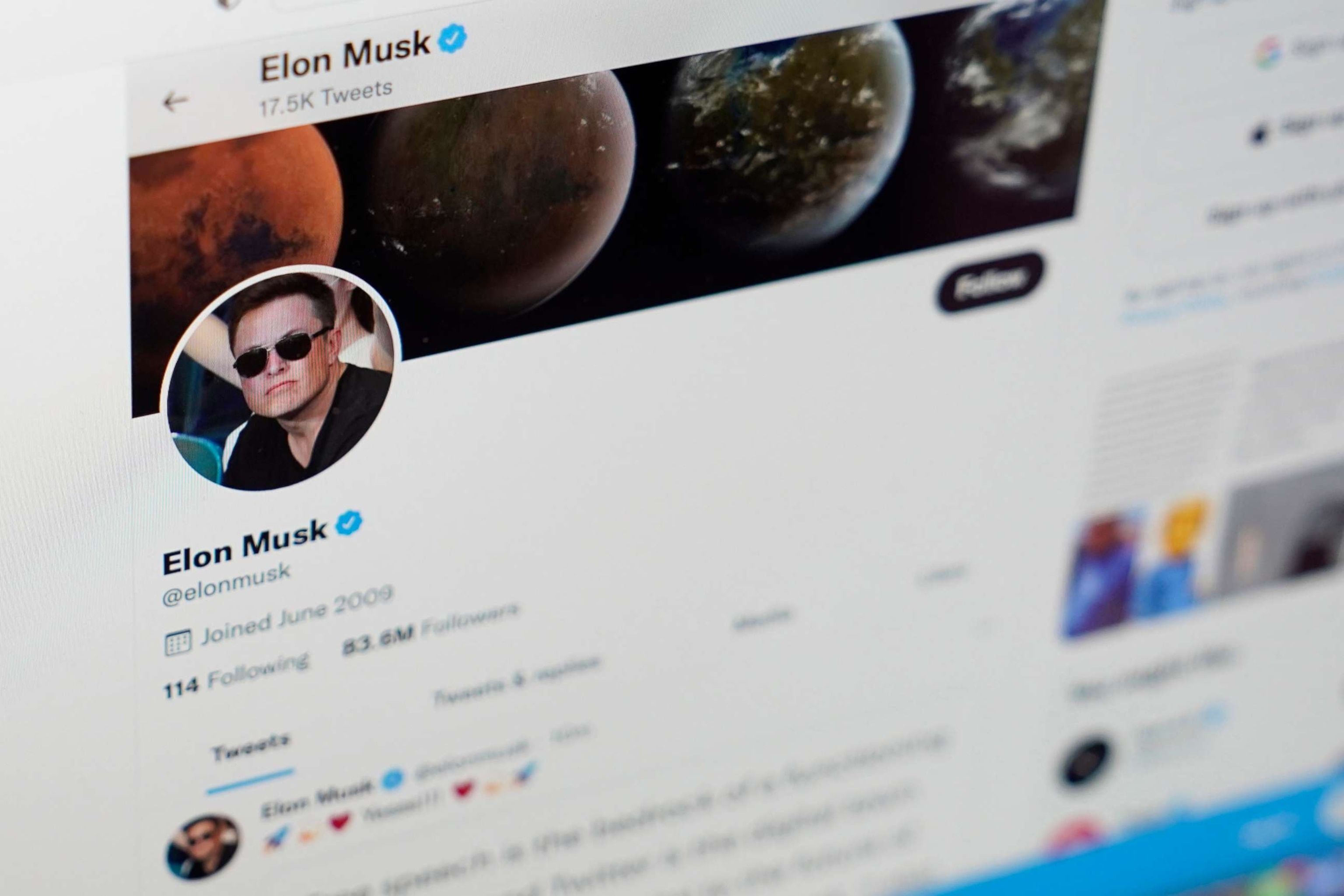
April 15 – Twitter adopts a poison pill provision to prevent the Musk acquisition. A poison pill allows current stockholders to purchase additional shares at a discounted price, diluting the shares owned by Musk and making it more expensive for him to buy the company. In an announcement, Twitter said the poison pill will be triggered if any individual or entity acquires at least 15% of the company's shares.
April 21 – Musk says in a securities filing that he has garnered commitments of about $46.5 billion in financing for a possible Twitter acquisition.
April 25 – Twitter accepts Musk's offer to acquire the company and values the deal at $44 billion, according to an announcement from the company.
April 29 – Over a three-day period after Musk and Twitter reach a deal, and he sells about $8.5 billion worth in Tesla stock to help finance the bid.
May 4 – Musk secures more than $7 billion in financing for the deal, including commitments from Oracle co-founder Larry Ellison, venture capital firm Sequoia Capital and cryptocurrency exchange Binance, according to a securities filing.
May 6 – In a pitch deck for investors, Musk says he will quintuple Twitter's revenue by 2028, increasing annual earnings to $26.4 billion, the New York Times reports.
May 10 – Musk says he would reverse Twitter's ban of the account that belongs to former President Donald Trump. The remarks from Musk were made virtually at an auto conference.
May 12 – Twitter announces a temporary hiring freeze, pending Musk's acquisition; and two top executives leave the company.
May 13 – Musk tweets that the Twitter deal is "temporarily on hold," citing concern over what he says is the prevalence of bot and spam accounts on the platform.
Along with his tweet, Musk posts a Reuters report about a public filing from Twitter earlier in May that said fake accounts made up less than 5% of users on the platform. Apparently skeptical of the finding, Musk says he wants "details supporting calculation that spam/fake accounts do indeed represent less than 5% of users."
Roughly two hours later, Musk says he's "still committed" to the deal.
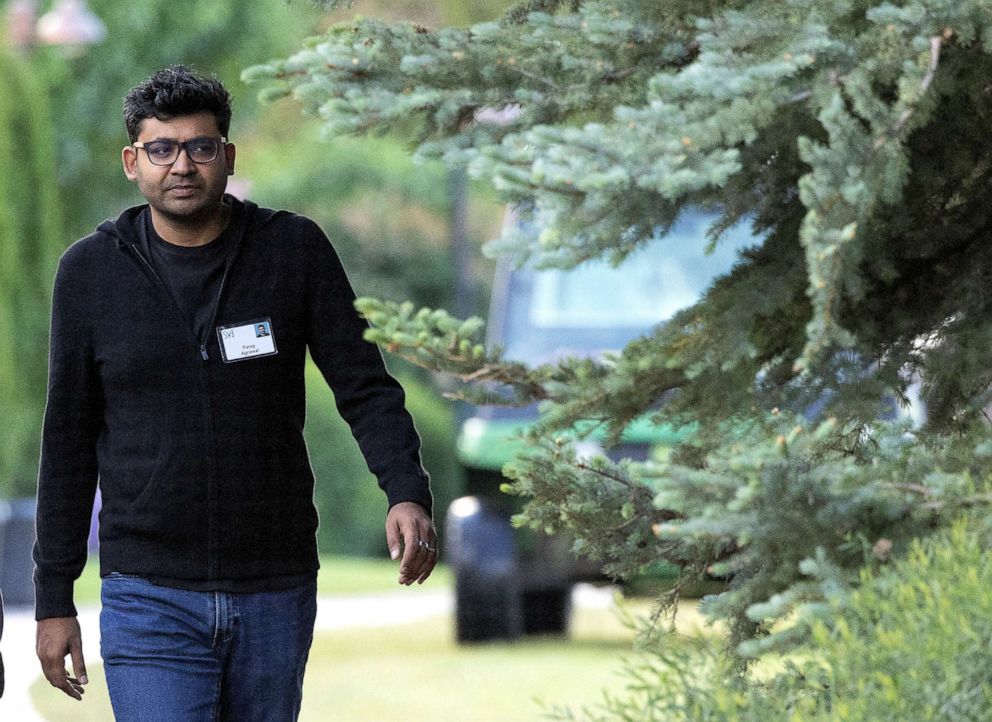
At the time, market analysts told ABC News the worry over fake accounts could serve as a pretext for Musk to bargain a lower price for the acquisition or abandon the effort altogether.
May 26 – Twitter shareholders bring a class-action lawsuit against Musk over alleged stock manipulation tied to the tumultuous acquisition process. At the time, Twitter's stock had fallen more than 12% since Musk announced his bid.
June 6 – Musk threatens to pull out of the deal if Twitter doesn't provide additional information about the prevalence of bots on its platform. In a statement, Twitter said it had been sharing information with Musk "in accordance with the terms of the merger agreement."
July 8 – Musk moves to terminate his acquisition of Twitter, pointing to the issue of fake accounts.
"Mr. Musk has sought the data and information necessary to 'make an independent assessment of the prevalence of fake or spam accounts on Twitter's platform'" and did not receive it, a securities filing said.
In an email on disclosed in a securities filing on Sunday, an attorney representing Twitter rejected Musk's effort to abandon the acquisition. "The purported termination is invalid," the attorney wrote, arguing that Musk had "knowingly, intentionally, willfully, and materially breached the Agreement."
"As it has done, Twitter will continue to provide information reasonably requested by Mr. Musk under the Agreement," the attorneys added.
July 12 – Twitter sues Musk in Chancery Court in Delaware to force him to complete the deal.
"Musk refuses to honor his obligations to Twitter and its stockholders because the deal he signed no longer serves his personal interests," Twitter said in the lawsuit. "Musk apparently believes that he — unlike every other party subject to Delaware contract law — is free to change his mind, trash the company, disrupt its operations, destroy stockholder value, and walk away."
Musk did not immediately respond to a request for comment on the lawsuit.
If permitted to abandon the deal, Musk may be forced to pay a $1 billion termination fee.
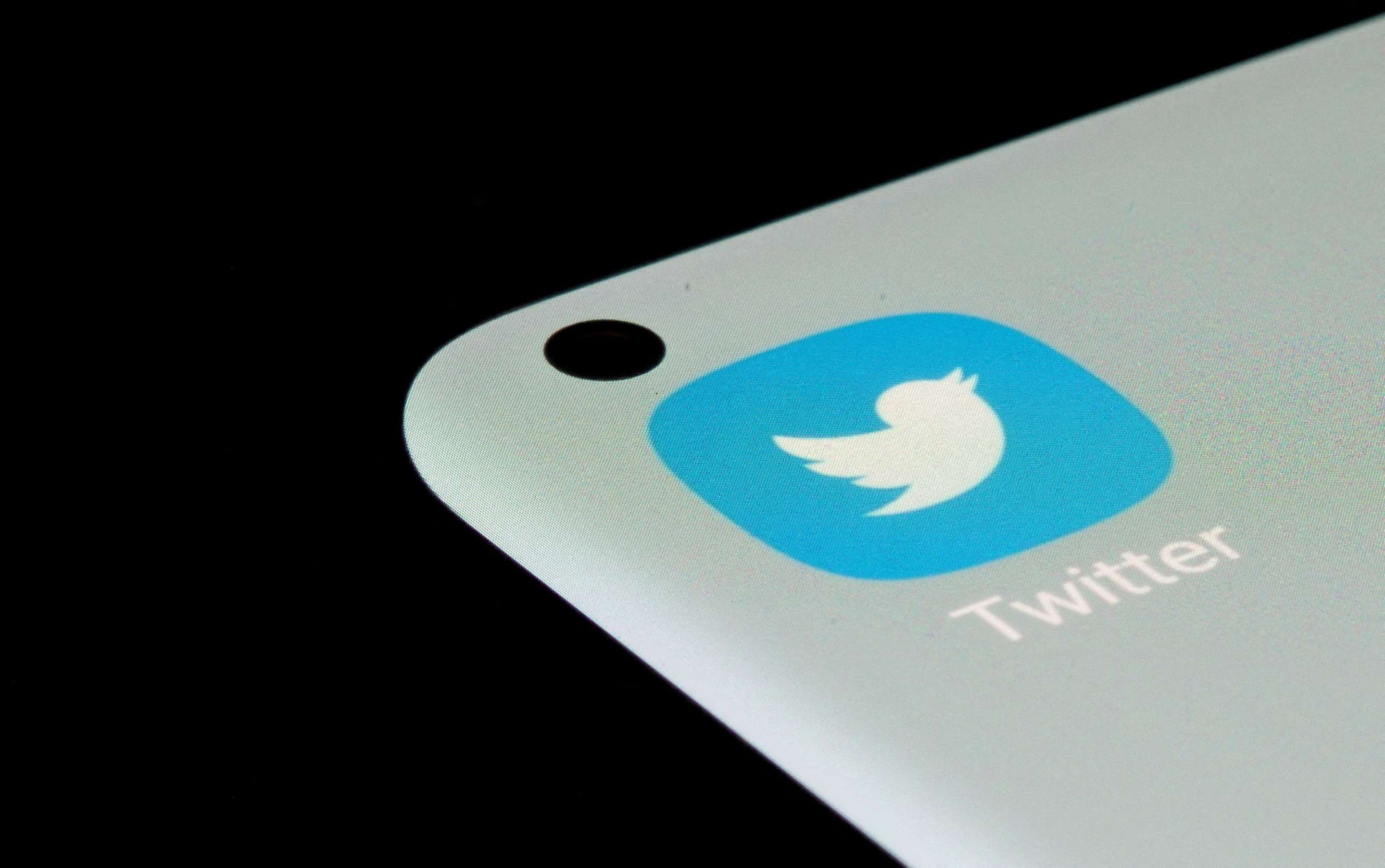
July 19 – A Delaware court determines that the trial in a lawsuit brought by Twitter against Elon Musk should take place in October, granting an expedited timeline for the case.
Aug. 23 – News breaks that former Twitter Head of Security Peiter Zatko alleged in a federal whistleblower complaint that the social media giant had numerous wide-ranging information security system lapses, according to a copy of the complaint made public.
In response, Twitter blasted Zatko, who worked at the company from November 2020 to January 2022, saying he was spreading a "false narrative about Twitter" and was fired for "ineffective leadership and poor performance."
Oct. 4 – Musk proposes the completion of a deal to acquire Twitter, reversing a monthslong effort to terminate the agreement. The proposal would complete the deal at Musk's original offer price of $54.20 a share at a total cost of roughly $44 billion, a person familiar with the proposal told ABC News.
Oct. 28 – Musk closes a deal to acquire Twitter on the final day before the Delaware Chancery Court trial would have moved forward. Some of Twitter's top executives were fired, including CEO Parag Agrawal, chief financial officer Ned Segal, chief legal officer Vijaya Gadde and general counsel Sam Edgett, according to a source.
Musk said that he will forgo any significant content moderation or account reinstatement decisions until after the formation of a new committee devoted to the issues.
"Twitter will be forming a content moderation council with widely diverse viewpoints," Musk tweeted. "No major content decisions or account reinstatements will happen before that council convenes."
Nov. 4 – Twitter begins layoffs that will cut roughly half of its 7,500-person workforce, the company announced in an email.
"Today is your last working day at the company," the email said, which ABC News has reviewed. The subject line read "Your Role at Twitter" and was sent to the personal email addresses of those laid off.
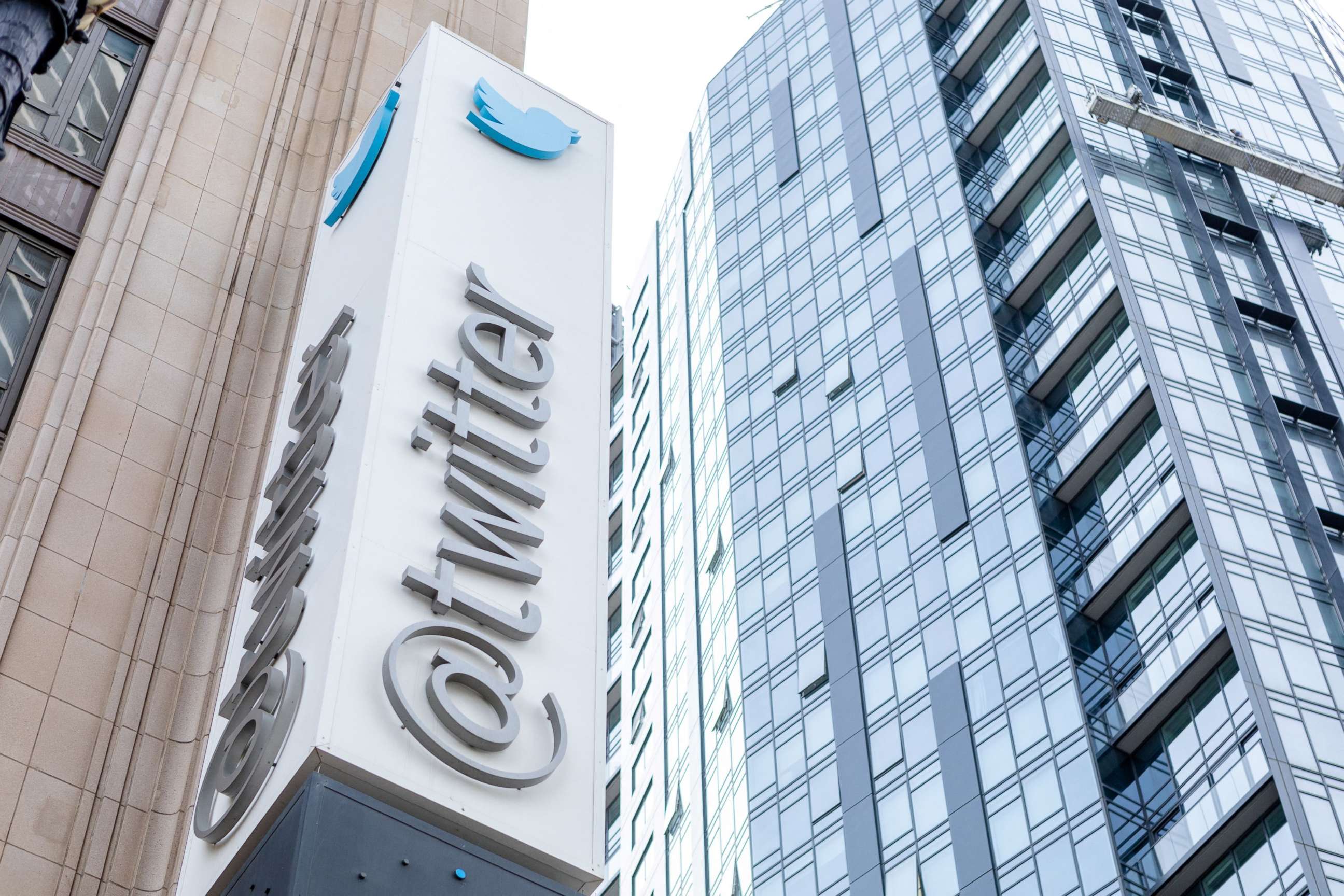
Nov. 9 – Twitter launches a new version of its subscription service, Twitter Blue, which allows users to access verification if they pay a monthly fee of $8.
Previously, the company verified celebrities, politicians, journalists and prominent figures on a case-by-case basis in an effort to prevent impersonation.
To address impostors, Musk says the site will permanently suspend users who attempt to impersonate others, unless the account is clearly marked as a parody.
Nov. 10 – A flood of fake accounts impersonating public figures and brands on Twitter after the launch of paid verification badges prompts the company to reinstate a second layer of "official" tags, the company said.
Impostor accounts posed as a slew of well-known people and companies, including basketball star LeBron James, former New York City Mayor Rudy Giuliani, gaming company Nintendo of America and even Tesla, the electric vehicle maker run by Twitter's owner, Musk.
Nov. 11 – Twitter Blue appears to be unavailable on the company's Apple iOS app for some users.

